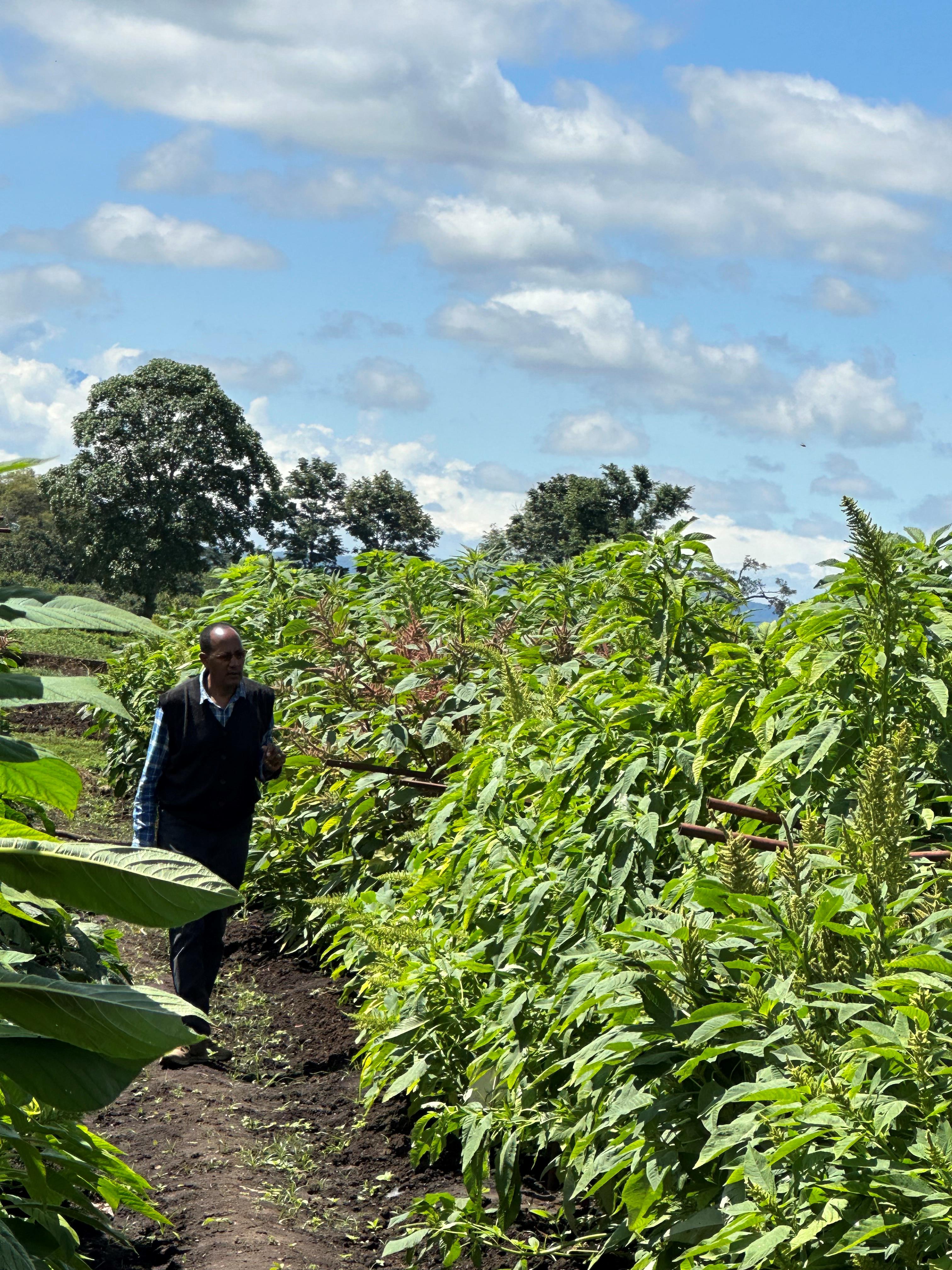
Researchers from the World Vegetable Center rescuing and evaluating the utilization of African amaranth
Africa is facing severe food shortages due to climate change and frequent extreme weather events, causing a gradual reduction in the genetic diversity of African vegetable crops. Additionally, the germplasm conservation of their wild relatives is also at risk, leading to a swift loss of biodiversity. To combat these challenges, the Department of Agronomy at NTU has collaborated with the “World Vegetable Center” based in Tainan, Taiwan, the “World Agroforestry Center” (CIFOR-ICRAF) in Kenya, the University of Abomey-Calavi in Benin, and other organizations, executing the “Taiwan African Vegetable Initiative” project. This project, supported by the Ministry of Foreign Affairs and the Ministry of Agriculture in Taiwan, aims to rescue the germplasm of African vegetables and promote diversity in vegetable production, providing a variety of nutrients to address issues related to food security and nutrition.

Researchers from the World Vegetable Center guiding Tanzanian farmers in cultivating African amaranth

The “Regional Office of Eastern and Southern Africa” of the World Vegetable Center in Arusha, Tanzania, collects and conserves various African vegetables.

African eggplant
Professor Yann-rong Lin from the Department of Agronomy at NTU (who was seconded to the World Vegetable Center as Deputy Director) and former doctoral student Wei-Hsun Hsieh were actively involved in this international cooperation project. They conducted assessments and analyses of “forgotten” crops and their wild relatives in Africa, south of the Sahara, to identify germplasm resources that are best adapted to future climate conditions and possessing nutritional value. The research anticipates that improving the climate resilience and complementary micronutrient supplies of these crops can help alleviate crises caused by famine and malnutrition.
Biodiversity conservation is a crucial endeavor in the battle against climate change. The more successful the preservation of genetic resources, the richer the crop gene pool, bolstering resilience against the impacts of climate change. Published on March 27, 2023, in the prestigious and highly impactful “Proceedings of the National Academy of Sciences of the United States of America (PNAS),” this academic research focuses on the theme of “Searching for Forgotten Food Crops for Healthy Diets under Climate Change in Sub-Saharan Africa.” The publication aims to highlight the significance of “forgotten crops” and their role in promoting healthy diets.
